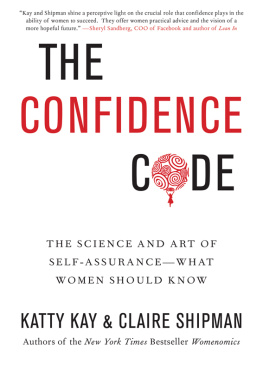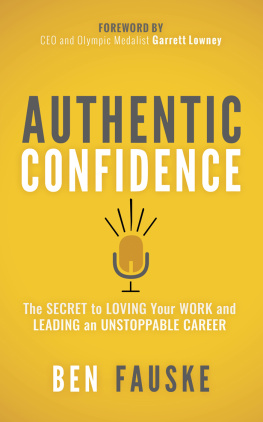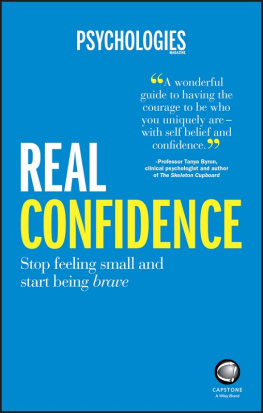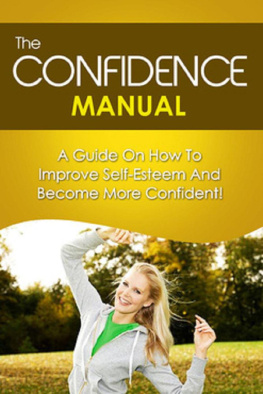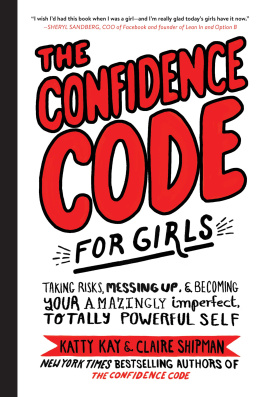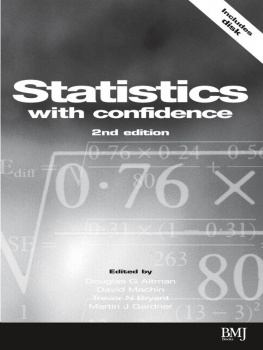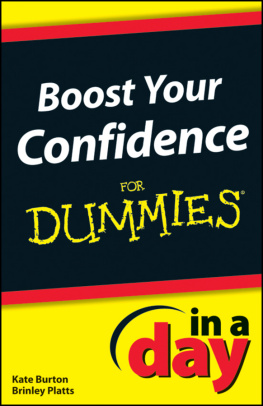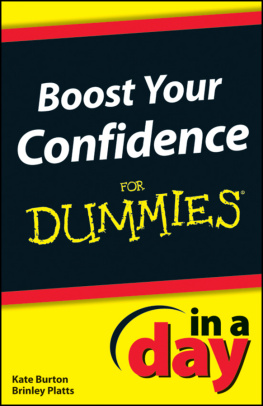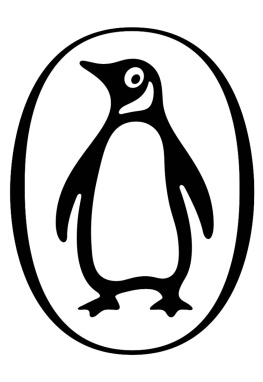A few years ago, the two of us found ourselves at the U.S. Capitol, listening to a series of speakers talk about the ever-vexing issue of women and work. Wed just finished writing Womenomics and were now on a master list of some sort for every women-themed meeting. This particular session was in a crowded basement room. Meetings about womens empowerment are apparently still best conducted in nooks and crannies and with a bit of discomfort.
Much of what we heard we knew already: Women help the bottom line of companies, companies want female talent, but somehow the pipeline to the top is still broken. We listened to a litany of predictable-sounding solutions having to do with flexible hours, legislation, and meetings with mentors.
Then Marie Wilson started talking. Almost seventy, and a storied feminist and fighter on behalf of women in politics, she is titanium determination coated with old-fashioned grace. She said, as we noted in the introduction, that we should think about the challenge this way:
When a man, imaging his future career, looks in the mirror, he sees a senator staring back. A woman would never be so presumptuous. She needs a push to see that image.
That hit us with a clarity we hadnt heard before. It immediately helped us to understand what wed been seeing in our reporting. In fact, we told her afterward that we think women often cant even see who they already arewhat theyve already accomplished.
We knew this was a phenomenon we had to explore. We are ever grateful to Marie for giving us the original jolt, and to all her kindred spirits who have labored for decades on these issues to give us the opportunities we have today.
As we have learned, inspiration is just one element paving the road to action. This book would also have never made it out of our ruminative, multitasking brains without the ever-incisive thinking and encouragement that our agent Rafe Sagalyn always provides. He simply refused to accept that we didnt have another book in us. We mean it as a sincere compliment when we say he can think remarkably like a woman.
Our brilliant editor, Hollis Heimbouch, believed in the project from our very first phone call, and, as she did with Womenomics , layered our work with her enthusiasm and smart sensibility, helping us make the subject clear and urging us to fully use our voices. She laughed and groaned and marveled at every bit of the topic right along with us, without ever letting us lower our standards. Very much the ideal friend prototype we mention.
This book would never have made it to the presses without the meticulous attention to detail and infinite patience of Associate Editor Colleen Lawrie. Leslie Cohen and Stephanie Cooperthanks for all of your hard work and enthusiasm as well. We are so grateful to the whole HarperCollins team.
We are eternally grateful for the help of dozens of generous and forgiving academics and scientists. They explained in painstaking detail how the human mind works, cognitively, biologically, genetically, and philosophically. They graciously managed to contain any exasperation they may have felt about conducting crash courses in neuroscience and psychology. We sincerely hope we have done them justice. Laura-Ann Petitto was such an enthusiastic guide through her work and her lab at Gallaudet and gave us hours of her time detailing the frontiers of neuroscience. Steve Suomi and his monkeys feel like pals at this point. Adam Kepecs gave us a new appreciation for rats, and very generously read the chapters, and conducted extensive email seminars late into the evening, complete with scanned drawings, on the nature of confidence. Jay Lombard and Nancy Grden at Genomind were so generous not only to offer to test the genes of two worried and warriorlike writers, but then to also spend hours on the phone talking us through the results, and the rest of our science. Fernando Miranda, as always, has been a wonderful friend. Catherine Afarian and Emily Drabant Conley at 23andMe were equally kind in doing our tests at lightning speed, and then walking us through all of their fantastic data. Tom Jessell at Columbia University was a treat to meeta mind-brain mogul whose enthusiasm is catching. And thanks, too, to Dr. Daniel Amen, whose book on gender brain differences is impossible to put down. Daphna Shohamy, Sarah Shomstein, Rebecca Elliott, and Frances Champagne, we so appreciate your insights on the latest in brain science.
We were lucky, too, to be helped by some of the best academic psychologists in the world. They took us through the complications of confidence and disabused us, with great patience, of many of our preconceptions. Our holistic understanding of this mysterious and powerful quality is also thanks to them. Richard Petty was the model of calm, fielding every question, and painstakingly distilling the many shades of confidence into a handy version that we could grasp. Cameron Anderson wowed us with his research on the power of confidence over competence. Zach Estes showed us that there is a gender gap, but that it is only in confidence not ability. Women can indeed park cars as well as men. Peggy McIntosh and Joyce Ehrlinger both always seemed genuinely happy to talk with usagain. Jenny Crocker, Carole Dweck, David Dunning, Victoria Brescoll, Brenda Major, Christy Glass, Kristin Neff, Nancy Delston, Ken DeMarree, Shelley Taylor, Suzanne Segerstrom, Nansook Park, and Barbara Tannenbaum were all thoughtful and thought-provoking instructors. Ryan Niemiec taught us the importance of values in our equation. And we are heartbroken that we wont get to meet Chris Peterson. Our interview with him was so clarifying and interesting. His remarkable spirit was plain, even in a thirty-minute call.
Sharon Salzberg provided a peaceful and insightful interlude. The powerhouse women at Running Start, Susannah Wellford Shakow, Katie Shorey and Jessica Grounds (who has since gone on to try to get Hillary Clinton elected), thank you for your invaluable help. What an important mission Running Start has.
Monique Currie and Crystal Langhorne not only played amazing basketball and let Della shoot a few hoops, but they also offered an unusual look at the scale of the confidence gap, even in their imposing arena. Coaches Mike Thibault and Karen Kelser, thanks for your time and everything you do for women and girls. Michaela Bilotta, we will be ever grateful for your candor in sharing hair-raising anecdotes from Annapolis. You DO deserve everything. You earned it. Chrissellene Petropoulos, you made us laugh and appreciate the hazards of a life on a real stage. Eunice Mussa-Napolo, your story is one we will never forget.
We talked to quite a few public figures, women with busy lives and endless obligations, and yet who were eager to help all of us solve the confidence equation. Christine Lagarde, Senator Gillibrand, Secretary Chao, Valerie Jarrett, Linda Hudson, General Wright, Jane Wurwand, Clara Shih, Michelle Rheethank you. And a few special words of gratitude to Sheryl Sandberg, who years ago offered two relative strangers early enthusiasm, valuable direction, and a mandate to challenge our assumptions. She then very generously and rather unexpectedly read our almost-completed manuscript in the middle of her winter holidays, offering quite concrete and incredibly useful suggestions. How terrific it was to experience firsthand what wed been told by the expertsthat the truest support one woman can offer another isnt necessarily comfort or commiseration, but rather the power of her attention, her thoughts, and her honesty. Thank you, Sheryl.
And to our friends who gave up their equally precious time and privacy and wisdom to help us with the projectPatti Solis Doyle, Tia Cudahy, Virginia Shore, Beth Wilkinson, and Pattie Sellers and Tanya Cokeyou were candid, funny, and inspiring as you laid bare your horror stories. We could not have cracked that stubborn code without you, and the struggle would have been a lot less entertaining.

